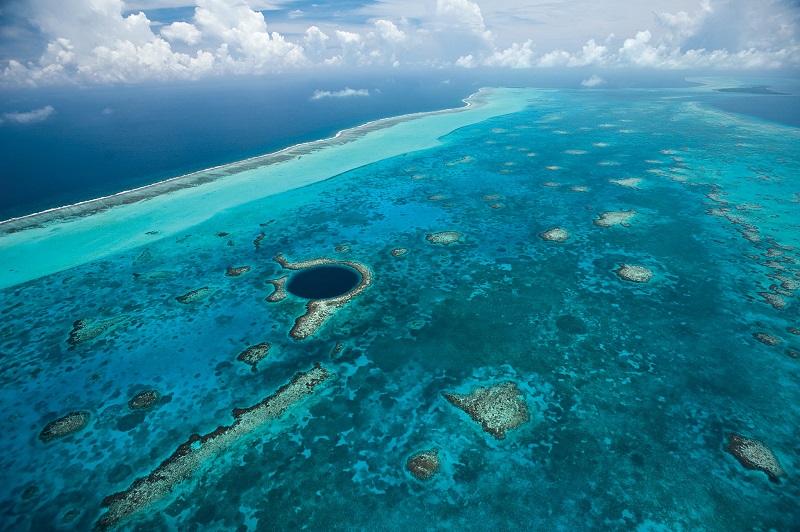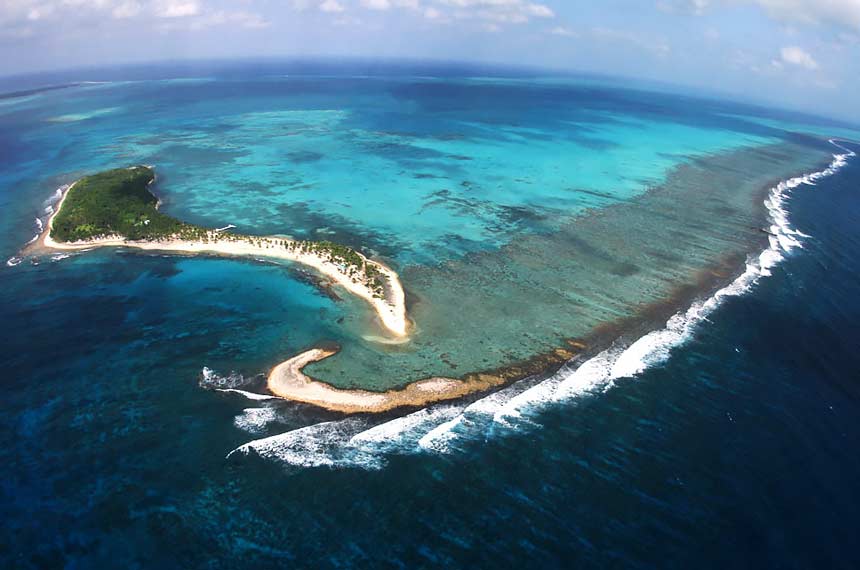Belizeans prove, once again, that thinking globally and acting locally is more than just a cliché
Back in May 2018 we posted an announcement that the Belize Barrier Reef was slated to be taken off UNESCO’s World Heritage “Sites in Danger List” – a warning issued in 2006 over concerns about loss of mangrove habitat, proposed oil exploration and other issues.

Even though removal from the list hadn’t been formally approved, our excitement was palatable. As we wrote back then:
“Although the decision won’t be formalised until next month, in June, when UNESCO holds its 42nd confab in Bahrain, the organisation recently released a draft decision that… recommended the Committee remove the reef from the List of World Heritage Sites in Danger…”
Well, June arrived, the meeting happened, and, as predicted, the Belize Barrier Reef Reserve System, or BBRRS as it is formally known, has been taken off the danger list.
In announcing the decision, the UN’s educational, scientific and cultural organisation was lavish in its praise, noting that “A visionary plan to manage the coastline was adopted in 2016,” and that “The level of conservation we hoped for has been achieved.”
The World Wildlife Fund, the celebrity-studded conservation organisation Oceana, and many other individuals and agencies have joined together in applauding the decision, as well as the hard work and people power that made it happen.
As WWF head Marco Lambertini put it,
“Belizeans stood up to protect their reef, with hundreds of thousands more globally joining the campaign to save our shared heritage…Belize has shown that it is possible to reverse nature loss and create a sustainable future.”

Way over on the other side of the planet, the Singapore-based Straits Times, with it’s large Asian and international readership, trumpeted the good news with a June 27 article that praised the Belize government for responding to people power, including an informal referendum in which “96 percent of Belizeans voted against offshore oil exploration, choosing the reef over potential economic gains for the Central American country.”
Our readers, and Chaa Creek’s global community of friends, visitors and supporters, know all about this commitment to “create a sustainable future”. Ever since they began taking in guests at their family farm to create Belize’s first true eco-resort back in the late 1970s, founders Mick and Lucy Fleming worked tirelessly to prove that business success can go hand-in-hand with environmental, social and cultural sustainability.

They were soon joined by likeminded colleagues, and before long little Belize began gaining a big reputation worldwide as a model for sustainable tourism development.
Sure, sometimes it wasn’t completely smooth sailing with certain developers, transnational corporations and government officials, but, as Oceana pointed out in a June 29, 2018 media release, Belize’s Prime Minister Dean Barrow showed himself to be a statesman of the first order when he responded to the UNESCO decision by acknowledging the role global organisations and local environmentalists played in preserving Belize’s Barrier Reef;
“I pay full tribute to Oceana in Belize’s mobilisation of citizens to persuade and to push Government to go further, I immediately concede, than perhaps might have been our original contemplation.”
And Oceana immediately responded by taking “this opportunity to salute the leadership of the Government and people of Belize,” for putting in place legislation to prohibit oil exploration, protect mangroves and generally safeguard the reef.
Which brings us to the one of the main points of this post – that people can make all the difference in the world… literally.
Whenever we start getting depressed about the pollution of the world’s air, oceans and waterways, when it seems like the rich and powerful, the international conglomerates and investors hold all the cards, we look at what has happened and is happening in Belize, and encourage other to do the same.

It makes us feel better.
If a small developing nation can accomplish what Belize has in the 37 years since it became independent, imagine what can be done if all global citizens joined together in protecting this beautiful spinning ball of nature we all call home?
We also invite you to come down (or up, depending on where you live) to see for yourself the stunningly beautiful natural resources that local and international environmentalist have worked so hard to protect.
We’re sure you’ll agree that it’s worth it…
(and with ten percent of what you spend on accommodation going directly into environmental and community projects under the “Chaa Creek Cares” initiative, you’ll enjoy being part of the solution)
